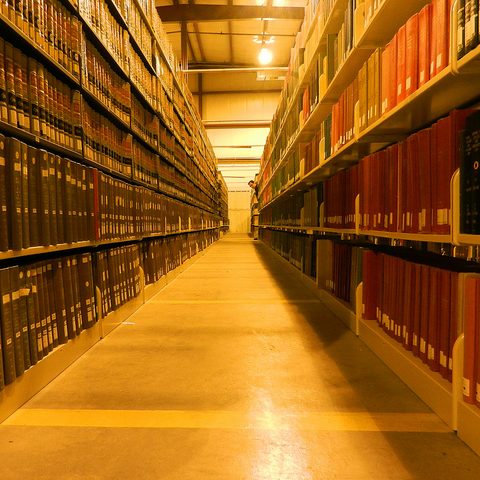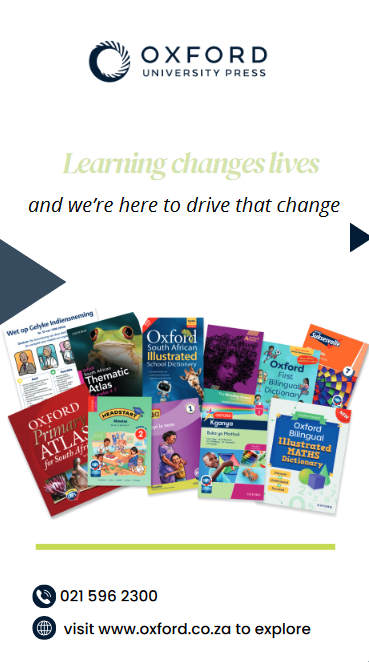Janet Thomson, Megan Rademeyer and Hlengiwe Mfeka
“There needs to be a policy for school libraries, an implementation plan that includes
qualified school librarians in each school, and a support service at the provincial level. The
benefits and value of a functioning school library under the leadership of a professional
school librarian have been recognized globally and shown to boost learner achievement.”
This is the view of Dr Sandy Zinn, senior lecturer, Department of Library & Information
Science, University of the Western Cape expressed in a Nal’ibali reading-for-enjoyment
campaign article. Dr Zinn relates the lack of school libraries to the repeated reports on low
levels of literacy in South African schools. Sound research supports this view and is
particularly relevant in a country with eleven official languages, contested language policy
and where low levels of reading competency characterise many Foundation Phase
classrooms.
Sadly, school libraries in South Africa are not the norm. The majority of government schools have a sense that libraries are the preserve of the wealthy, well-resourced schools. Most schools can only dream of the day when they might have a dedicated position for a media specialist or teacher-librarian post. Such specialists are also rare in curriculum advisory roles in provincial or district departments of education, thus supporting the view that libraries are not a priority in the South African education system.
In addition to the shortage of qualified librarians, with the advent of technology, the
traditional role of a librarian has evolved to become that of being a curator of resources,
predominantly digital resources. School librarians are now expected to be knowledge
managers who provide their teachers with a rich array of content to support their teaching.
Some provinces have been striving to address these challenges by establishing directorates within provincial structures. One such province is KwaZulu-Natal which has a dedicated unit called ELITS (Education Library Information and Technology Service).
SchoolNet South Africa has recently been contracted by the KwaZulu-Natal Department of
Education to conduct professional development with ELITS Officials during December 2017.
The intention of this course is to equip officials and those responsible for managing school
libraries with the skills to adapt to this changing digital role.
In order to conduct this training, SchoolNet SA has developed a Digital Library Course,
aimed to equip school librarians and provincial officials with knowledge of all issues digital
and pertaining to the management of a school library. Across the weeklong course, officials can see how digital tools and resources enhance the services traditionally offered at libraries and resource centres.
The course covers essential topics that all modern day librarians should be aware of, which they can apply to their libraries in a way that is appropriate for their context and the resources they have available. Modules include discussion of the following topics:
Using software to conduct library administration
Basic library functions can be automated to provide a fast, accurate and efficient service
which meets the needs of library users. Automated systems also ensure that all items on loan are properly tracked and retrieved as a form of asset management. Librarians should have some knowledge of library automation programmes and how these can enhance library administration.
Effective use of online resources
There are many resources available online which are designed to enhance the teaching
programme. Librarians should be able to find and curate appropriate resources for their
contexts.
Communication and marketing and using social media
Signage, displays and posters can help make a library or resource centre an inviting space to be in; they can raise awareness of certain topics or special days. Newsletters, reading lists and social media can provide access to a wide range of resources. Librarians should have the skills to use digital tools to market their centres and to enhance communication.
e-Safety, plagiarism, copyright and ethical use of information
Librarians need to ensure that in addition to providing access to online materials with
educational value that their centres have a digital literacy programme in place which includes digital citizenship and e-safety. Furthermore they need to manage the ethical use of information.
Finally – a librarian needs to be able to apply what he or she knows about digital librarianship to his or her own unique context. With this in mind, the SchoolNet SA Digital Library Course culminates in participants developing a well-defined and well-informed personalized action plan designed to ensure that the school library or education centre that course participants are associated with fully utilize the advantages of digitization.
Whilst schools, municipal libraries and district ICT resource centres have different levels of
resources available, all staff tasked with managing libraries should be aware of digital issues pertaining to the management of their centres or libraries to enhance the services they offer.
The writers are with SchoolNet










